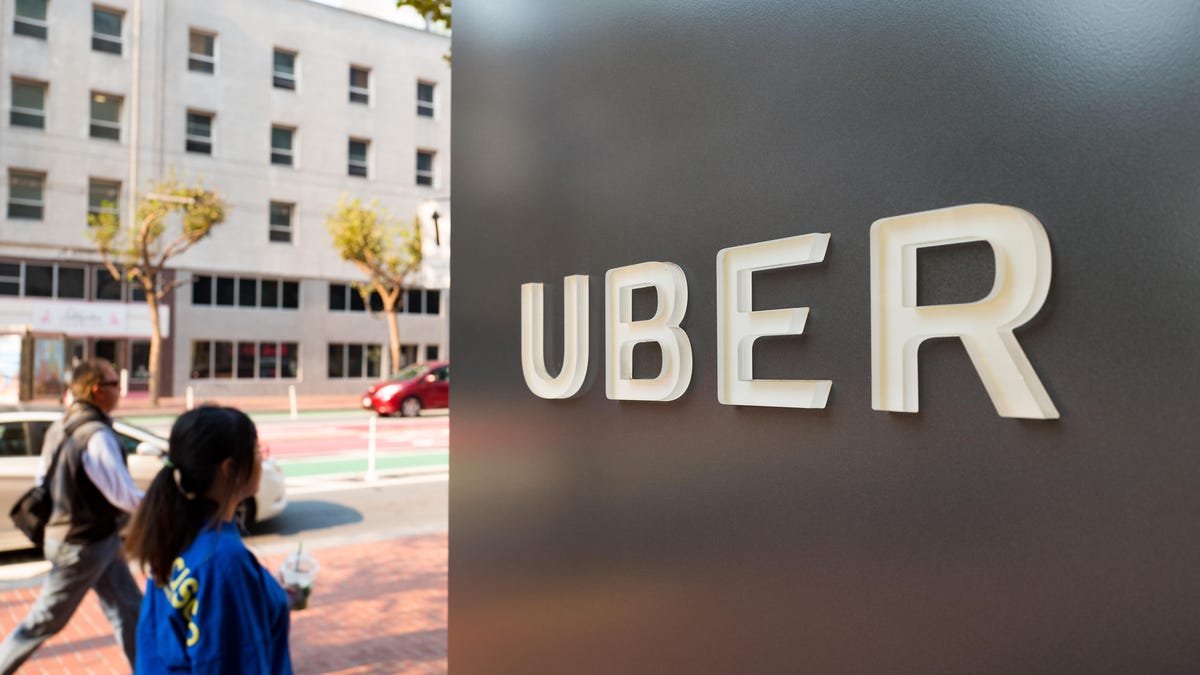Uber sued by former engineer for sexual harassment
Inappropriate comments and touching are some of what the female engineer says she endured while working at the ride-hailing company.

Uber is facing a new lawsuit alleging sexual harassment and discrimination against female employees.
A female engineer who worked at Uber for three years has sued the company for sexual harassment.
Ingrid Avendaño filed the lawsuit in San Francisco Superior Court on Monday, saying she was discriminated against for being female while working at the ride-hailing startup from 2014 to 2017. The law firm representing Avendaño -- Outten & Golden -- said the company retaliated against her when she complained about her treatment.
"Each time Avendaño raised concerns regarding unlawful conduct, she was met with Uber's entrenched disregard for the rights of its women employees and a refusal to take effective steps to prevent harassment," reads the lawsuit complaint. "Worse, she suffered blatant retaliation, including denial of promotions and raises, unwarranted negative performance reviews, and placement on an oppressively demanding on-call schedule that had detrimental effects on her health."
The suit comes just days after Uber announced it was ending forced arbitration on individual complaints for employees, drivers and passengers alleging sexual assault or harassment. That means these kinds of cases can now happen in public court, rather than behind closed doors.
Avendaño quit working for Uber during an especially rocky time for the company. Uber's problems started snowballing in February 2017 after former Uber engineer Susan Fowler wrote a blog post about her experiences working at Uber, which included sexual harassment, "a game-of-thrones political war raging within the ranks of upper management" and gender bias.
Last June, more than 20 employees were fired after the company investigated sexual harassment allegations. Later that month Uber's then-CEO and co-founder Travis Kalanick was forced to resign.
New Uber CEO Dara Khosrowshahi came on board in August and has promised to be more transparent and end discrimination and sexual harassment within the company.
"Uber is moving in a new direction," an Uber spokeswoman said in an email on Monday, declining to comment specifically on the lawsuit. "In the past year we have implemented a new salary and equity structure based on the market, overhauled our performance review process, published Diversity & Inclusion reports, and created and delivered diversity and leadership trainings to thousands of employees globally."
This is the second time Avendaño has sued Uber. She filed her first lawsuit against the company in October with two other female engineers. They alleged that female and minority employees were paid less than their white male counterparts. That lawsuit became a class action suit representing 420 female engineers and was settled for $10 million in March. Avendaño opted out of the settlement, however, and decided to pursue her claims separately.
Avendaño's new lawsuit focuses on sexual harassment claims. The 33-page complaint is detailed with allegations where male colleagues touched her and spoke to her inappropriately.
In one incident, a coworker reportedly told her, "Uber is the type of company where women can sleep their way to the top." When Avendaño reported what happened to two of her managers, a senior human resources representative allegedly said he'd look into the allegations but that was only her coworker's first offense.
In another incident, another male coworker reportedly touched Avendaño's upper thigh and over time continued to make multiple advances toward her, such as telling her she was "so cute" and that he wanted to "take her home." Avendaño said other male employees could be even more crass and talk about female employees' bodies and about who they wanted to "fuck."
Avendaño estimates that when she started at Uber in 2014, about 20 percent of the engineers were female. By the time she quit in 2017, she believes only 7 percent were.
In her suit, Avendaño is seeking damages for lost wages, earnings and equity, among other things. She's also asking to be reinstated in her position at Uber with "appropriate seniority and compensation."
"I believe that Ingrid Avendaño's actions demonstrated a steadfast commitment to the betterment of Uber," said Jennifer Schwartz, the lawyer representing Avendaño. "For years, she wanted to help make Uber a safe and just place to work for herself and other female employees."
iHate: CNET looks at how intolerance is taking over the internet.
Solving for XX: The industry seeks to overcome outdated ideas about "women in tech."

